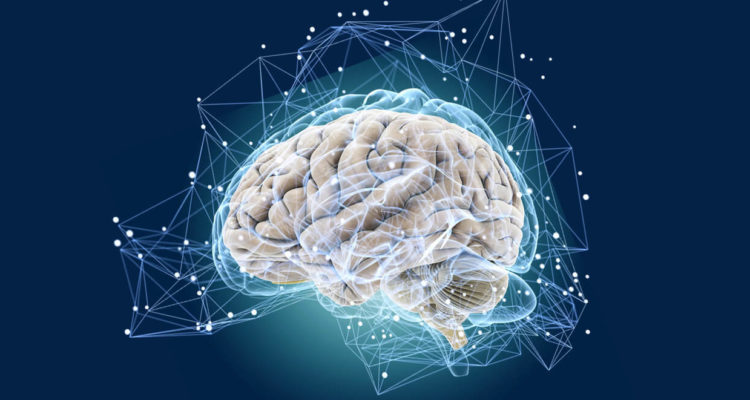
How stress and anxiety physically change our brain
0
After psychological trauma, we become different people – this is true.
Serious shocks and chronic stress affect many aspects of life: appetite disappears, sleep is disturbed, mental health suffers in general. However, few people know that psychological influences can injure the brain. In the literal sense: they cause quite obvious physical damage to the gray matter.
According to a recent study published in the journal Revue Neurologique, acute stress reactions and chronic mental disorders, provoked by the same severe stress, disrupt the work of two key systems of the brain – they are tentatively designated as “protective” and “cognitive”.
This can affect how the brain reacts to threats, including the simplest everyday problems and conflicts. The ability to control emotions, remember and process information also changes.
There are three areas of the brain that respond most to stress.
How stress changes the brain< /h2>
Amygdala becomes hyperactive and increases in size
The amygdala (amygdala) is a section of nervous tissue that is primarily responsible for emotions. In particular, for fear and anger.
This zone plays the most important role in the work of the instinct of self-preservation. The main task of the amygdala is to process information coming from the senses and detect a threat. The response to a perceived external danger is either anger (the first part in the famous fight-or-flight response) or fear.
In people who have experienced severe psychological trauma, the amygdala can become hyperactive.
This means that the amygdala starts to trigger the fight-or-flight response at any moment, even if the person is not in danger.
p>
This causes tension of the parasympathetic nervous system: the heart pumps blood more actively, muscles tense up, breathing becomes more frequent, a person becomes very attentive to small things, his feelings are heightened. In everyday language, this state is called “on platoon”. Psychologists have their own term – amygdala capture.
A panic attack, a surge of emotions and aggression, and stress can be the result of amygdala seizure. The more hyperactive the amygdala is, the more often and easily it is excited, the more the nervous system is exhausted.
A person becomes irritable, hot-tempered, aggressive, unable to control himself. Stress develops into a chronic form, due to which problems with sleep arise, and the situation becomes more complicated.
Changes in the tonsils also occur at the physical level. A study published in the “Journal of Head Injury Rehabilitation” found that combat veterans with post-traumatic stress disorder have an enlarged brain region compared to those without PTSD.
The work of the prefrontal cortex deteriorates
The prefrontal cortex is a more “intelligent” part of the brain, which normally restrains excessively emotional impulses of the amygdala.
The amygdala feels a negative emotion, such as anger or fear, and the prefrontal cortex evaluates this emotion rationally. Weighs whether the danger detected by the amygdala is really so great and whether the parasympathetic nervous system really needs to be disturbed.
For example, if you go to a meeting with your boss, anticipating a delivery, the amygdala insists on turning on the “fight or flight” reaction. .
But the prefrontal cortex tells you that a visit to the boss is unpleasant, but not fatal. Thanks to this, the amygdala calms down, and you take control of yourself.
However, research reports: both acute and chronic stress weaken the prefrontal cortex, physically reducing the number of active neurons in it.
As a result, it loses the ability to control the amygdala's reactions. Any danger, even perceived, the brain begins to perceive as a mortal threat – and reacts accordingly.
The hippocampus shrinks and fails
The hippocampus is an area brain, which is mainly responsible for storing memories. It also helps to distinguish past experience from the present.
Mental trauma disrupts the hippocampus. It manifests itself differently in different people. For example, someone may forget part of their past, but the memories of a traumatic event will remain vivid and clear.
Others will panic every time the environment around them even slightly resembles the one in which they were in the process of receiving injuries.
This happens because the brain loses the ability to clearly distinguish between the past and the present. But the matter is not limited to special effects with memory.
In people with PTSD, the physical size of the hippocampus is sometimes significantly reduced. Such damage is caused by constant anxiety and stress in which they live.
The smaller the hippocampus, the worse it copes with its functions. This means that a person will experience more difficulties with memory and panic attacks.
What to do if the brain is damaged due to mental trauma
There is no specific way to restore the brain after damage caused by acute or chronic stress. But there is still one unambiguous point: it is necessary to consult a doctor as soon as possible. The best thing is to see a psychotherapist.
Can Emotional Trauma Cause Brain Damage?, source
Acute and Post‑Traumatic Stress Disorders: A biased nervous system, source
Amygdala Hijack and the Fight or Flight Response, source
A bihemispheric autonomic model for traumatic stress effects on health and behavior, source
The effects of stress exposure on prefrontal cortex: Translating basic research into successful treatments for post-traumatic stress disorder, source









Leave a Reply